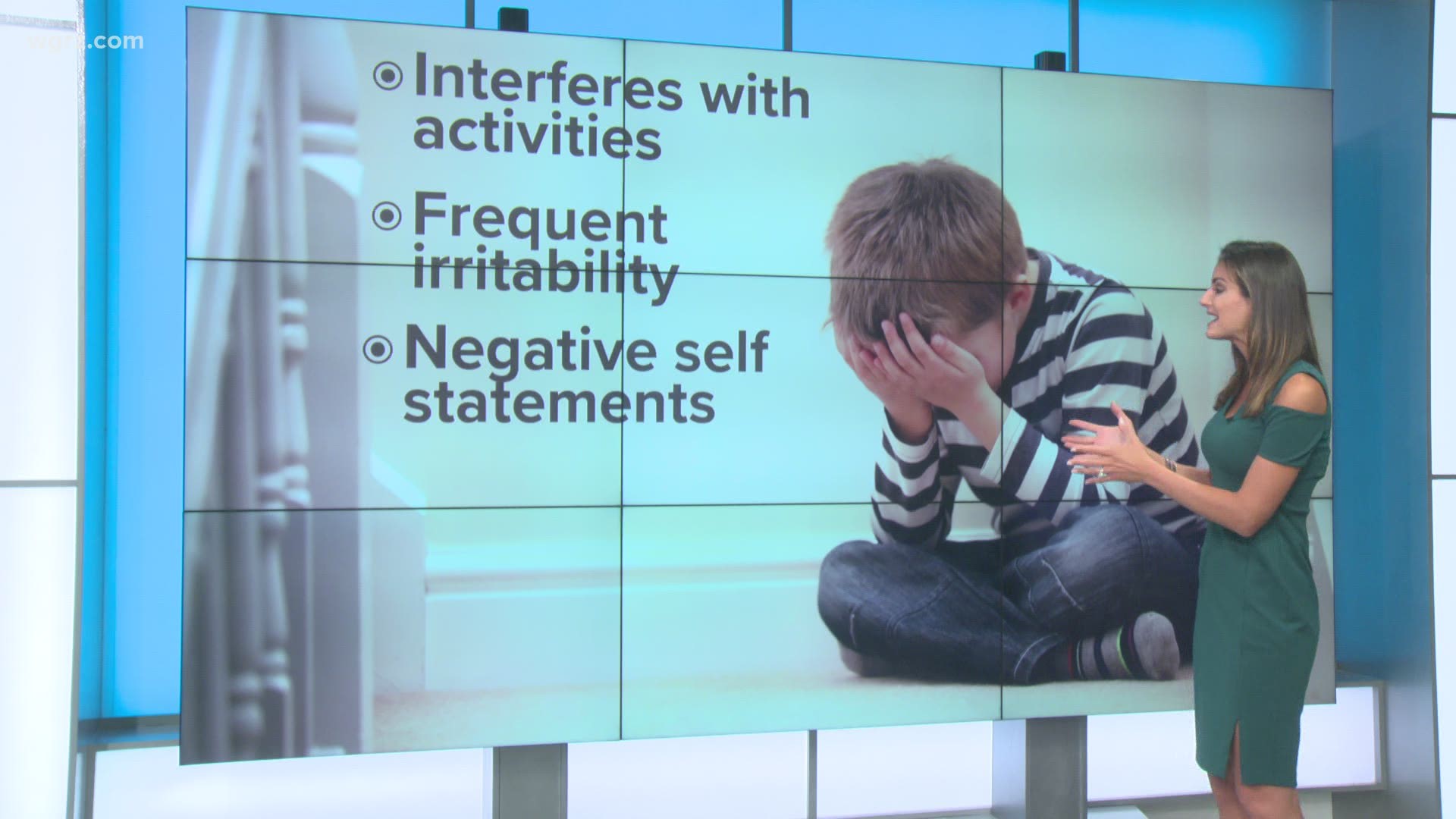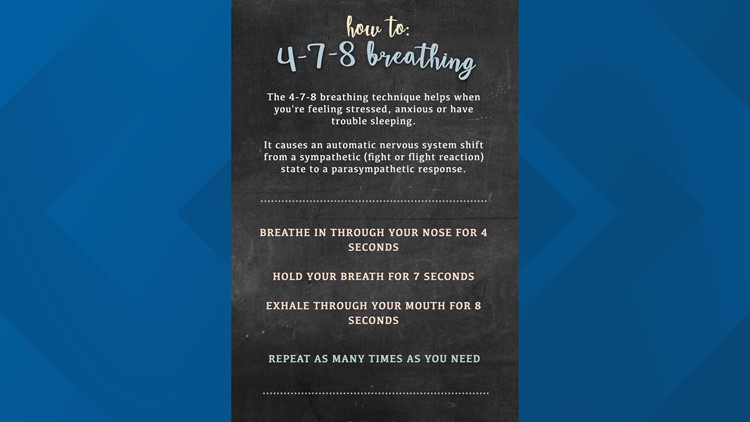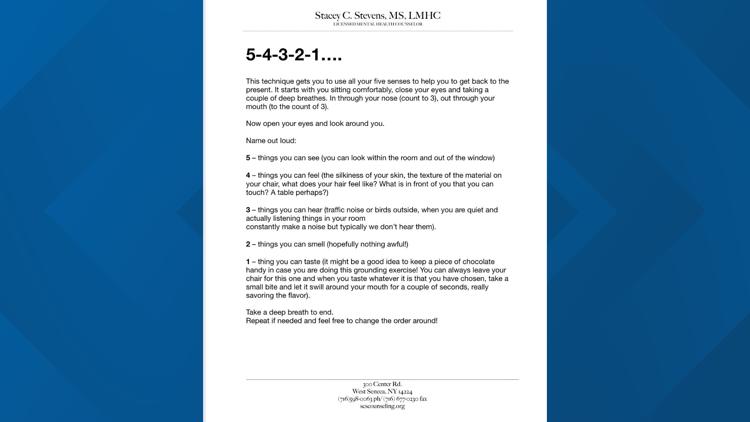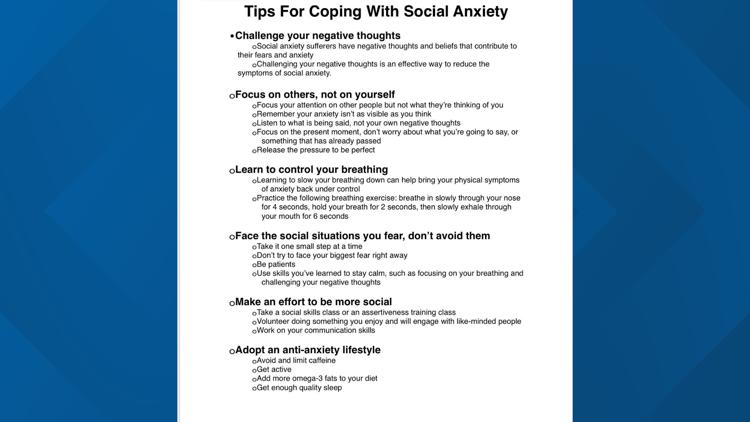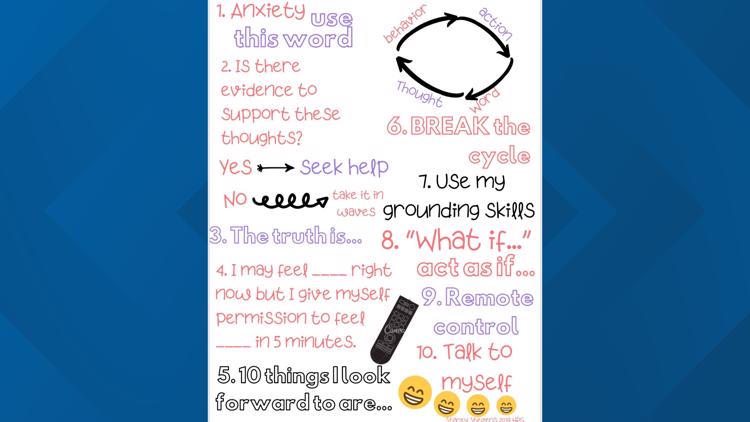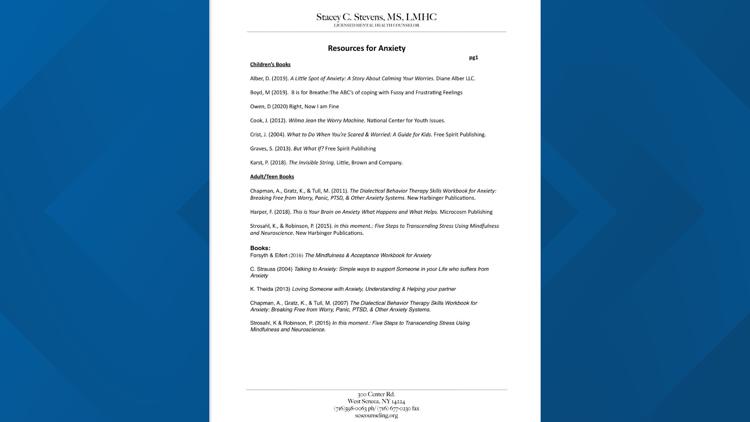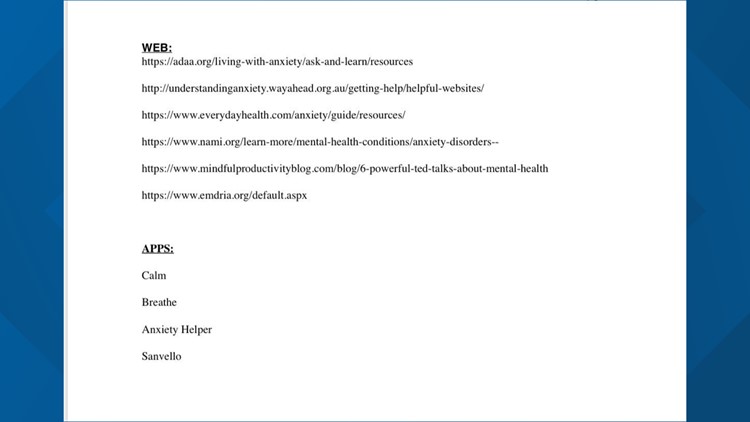BUFFALO, N.Y. — Now that schools are entering the third week of classes, either in person or at home, how are your kids dealing with the changes?
A WNY mental health counselor says the transition to this new way of learning, the fear of germs and seeing people in masks, the loneliness of not being able to be close to friends, might all be contributing to stress and anxiety.
Some signs you should look for that your kids are not handling school well include,
- a change in eating or sleeping habits
- a change in mood. Do they seem more irritable or cranky?
"Crankiness is often a sign of worry and anxiety. It kind of gets written off that they're being challenging or they don't want to do this, but that oppositional behavior, irritability, crankiness can really be a sign of anxiety," said Stacey Stevens, MS, LMHC, a licensed mental health professional.
When do you know that stress is really turning into a problem? Stevens says,
- when it interferes with things they used to enjoy
- when the irritability happens more frequently or at unusual times
- when they make negative self-statements like "I'm so stupid" or "I can't do this"
- when emotional signs like worry and fear are coupled with physical signs like headaches, stomach aches, or body aches
So what can a parent do? Stevens suggests,
- you and your children have a predictable, consistent routine
- you make sure your child is getting time away from the screen, breaks from their work and plenty of physical activity
- practice mindfulness and breathing exercises
- And finally, just talk to them about school. Slip in that conversation while you're cooking or playing with them. Don't ask yes or no questions. Instead of asking "do you like school?" try to ask, "what's the best part of the way your school is doing things?" or "what's the worst part?"
Stevens also says you should let your child know stress is normal. She says you might want to tell your child, 'These changes are really really hard for me. How are you doing with them? I'm struggling with it.'
"We can role model for our kids that even though this is a challenge, there are opportunities to learn new things from it, but we can talk about it and it's ok to feel confused or frustrated or angry about it," said Stevens.
She also says your kids can feed off your stress, so you need to take care of your mental health, too.
And be sure to keep watching their behavior. You might not see changes and problems arise until 4-6 weeks after school begins.
Here are additional stress and anxiety resources from Stacey Stevens:

